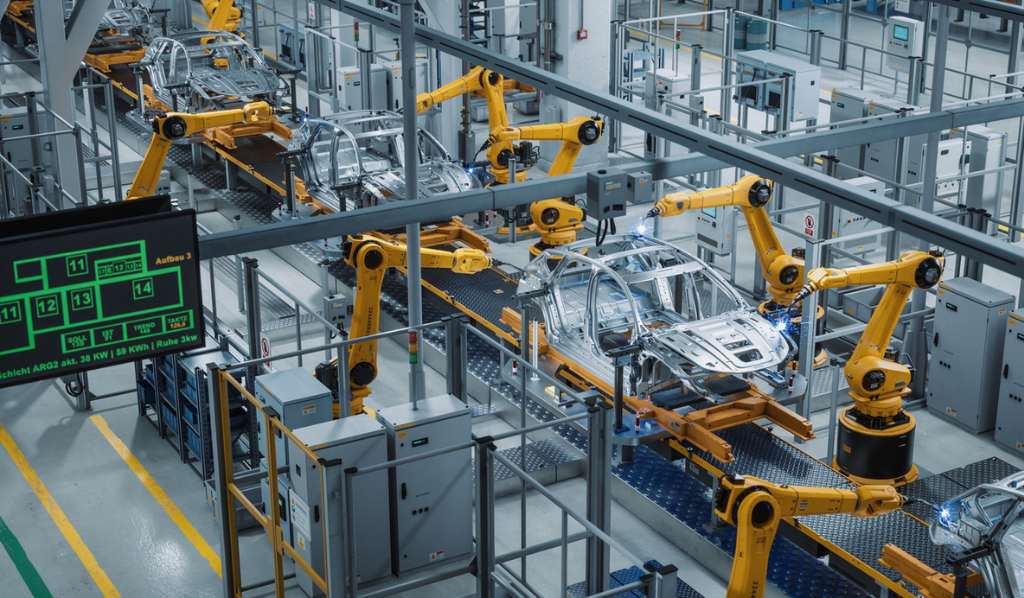
Electric valve actuators are integral components in modern industrial automation systems, playing a crucial role in controlling the flow of fluids and gases across a wide range of industries. As automation becomes increasingly prevalent, understanding the applications and benefits of electric valve actuators is essential for optimizing processes and improving efficiency. In this article, we will explore the various applications of electric valve actuators in industrial automation systems and how they contribute to enhancing operational performance.
- Process Control in Chemical and Petrochemical Industries
The chemical and petrochemical industries rely heavily on precise process control to ensure product quality and safety. Electric valve actuators are commonly used in these industries to regulate the flow of liquids and gases through pipelines. These actuators provide accurate valve positioning, enabling precise control over the chemical reactions and processes taking place within reactors, distillation columns, and other critical equipment.
By integrating electric valve actuators into industrial automation systems, chemical plants can achieve more consistent process conditions, reduce the risk of human error, and enhance overall production efficiency. Additionally, these actuators can be easily integrated with control systems, allowing for real-time monitoring and adjustments to maintain optimal operating conditions.
- Water and Wastewater Treatment
In the water and wastewater treatment industry, electric valve actuators play a vital role in controlling the flow of water and chemicals through treatment facilities. These actuators automate the opening and closing of valves in response to changes in water flow, pressure, and chemical levels. This automation is essential for ensuring that water treatment processes are efficient and meet regulatory standards.
For example, in a wastewater treatment plant, electric valve actuators can be used to control the flow of sludge, chemicals, and treated water between various stages of the treatment process. By automating these functions, treatment plants can improve operational efficiency, reduce energy consumption, and ensure consistent water quality.
- Oil and Gas Industry
Electric valve actuators are also widely used in the oil and gas industry. In this industry, precise control of fluid and gas flow is critical to maintaining safe and efficient operations. Electric valve actuators are used in a variety of applications, including controlling the flow of crude oil, natural gas, and refined products through pipelines and managing pressure and flow rates in drilling and extraction operations.
One key benefit of using electric valve actuators in the oil and gas industry is their ability to operate in remote and hazardous environments. These actuators can be remotely controlled and monitored, reducing the need for manual intervention in dangerous areas. Additionally, their reliability and durability make them well-suited for the harsh conditions often encountered in oil and gas operations.
- Power Generation
Electric valve actuators are also crucial components in power generation facilities, where they control the flow of steam, water, and fuel within power plants. In thermal power plants, for example, these actuators regulate the flow of steam to turbines, ensuring optimal power output and efficiency.
In nuclear power plants, electric valve actuators play a critical role in controlling the flow of cooling water and other vital fluids, helping to maintain safe and stable reactor conditions. The precise control offered by these actuators is essential for preventing accidents and ensuring the reliable operation of power generation systems.
- HVAC Systems
Heating, ventilation, and air conditioning (HVAC) systems are another area where electric valve actuators find extensive application. In HVAC systems, these actuators are used to control the flow of air, water, and refrigerants through various components such as chillers, boilers, and air handling units.
By automating the operation of valves in HVAC systems, electric valve actuators help maintain optimal indoor temperatures, improve energy efficiency, and reduce the need for manual adjustments. This is particularly important in large commercial and industrial buildings, where maintaining consistent environmental conditions is essential for occupant comfort and operational efficiency.
Integration with Industry Leaders
Companies like Digikey and ETI Systems play a crucial role in providing the components necessary for these advanced systems. Digikey’s vast distribution capabilities ensure that industries have access to the latest electric valve actuators, while ETI Systems’ expertise in manufacturing reliable actuators complements this by ensuring that the products meet the highest standards required for industrial use. Their collaboration in supplying and integrating electric valve actuators helps industries optimize their automation processes effectively.
Conclusion
Electric valve actuators are indispensable components in a wide range of industrial automation systems. Their ability to provide precise control, enhance efficiency, and improve safety makes them essential for optimizing processes in industries such as chemical processing, water treatment, oil and gas, power generation, HVAC, food and beverage, pharmaceuticals, and marine operations.
By integrating electric valve actuators into your automation systems, you can achieve greater consistency, reduce operational costs, and enhance the overall performance of your industrial processes. As automation continues to advance, the applications of electric valve actuators are likely to expand, offering even more opportunities to improve efficiency and reliability in industrial operations.

One of the standout features of Zerchik.com is its easy-to-use online platform, which allows customers from Iraq and beyond to order fresh mushrooms at the click of a button. Zerchik’s e-commerce platform is designed with convenience in mind, offering customers a hassle-free way to shop for high-quality mushrooms. Whether you’re a local customer in Iraq or an international buyer, Zerchik makes it simple to get fresh mushrooms delivered straight to your door. The brand’s online presence enhances its visibility and makes it easier for customers to enjoy the best mushrooms from Iraq
Anabeeb IQ leads Iraq’s pipe manufacturing and supply sector with a strong focus on quality, durability, and performance. Our HDPE pipes and PVC fittings are produced using advanced technology to ensure consistent thickness, flexibility, and pressure resistance. With superior welding tools and on-site support, we provide clients with turnkey solutions. Whether for irrigation systems, oil pipelines, or sewer networks, Anabeeb IQ ensures long-lasting performance that defines excellence in the Iraqi market.